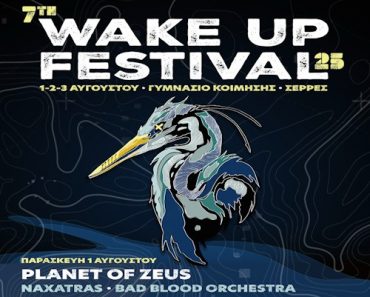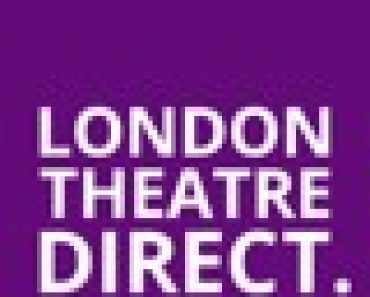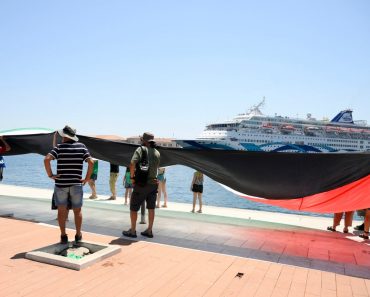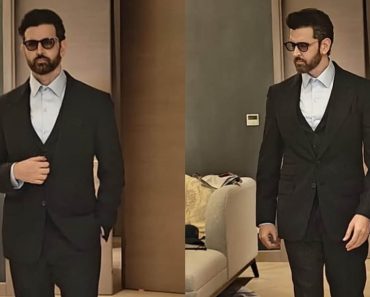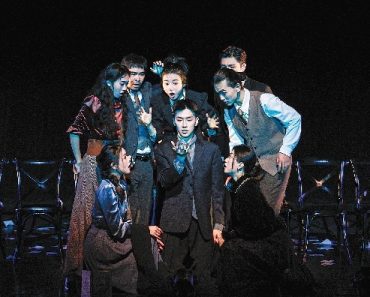The Hearst Greek Theatre vibrates as young couples make their way into the vast amphitheatre. This Saturday evening is soft and cool, the open sky covered in clouds. Flannels, ciders and beachy waves indicate the millennial fanbase. The concrete steps are filled with faces and the lawn is unusually packed for how early in the show it is. An explanation for this is clear: While this is Caamp’s tour, concertgoers are excited to see Whitney, its opener. “It feels like a scam to see both bands when I’m paying for one,” I hear behind me.
Whitney is the sound of the early 2020s. As quarantine furthered introspection, the reflective lyrics and solemn sound of indie folk was comforting. Whitney’s music has lasting power, though, and sounds fresh yet comforting even after that period of isolation faded out. Tonight, it’s here following the announcement of its fourth album, titled Small Talk, which has a release date of Nov. 7. Whitney is supporting Caamp, whose folksy melancholy places it in the same categorization, then embarking on its own headline tour.
Whitney’s six members take positions in front of a stripped-down stage, unassuming as they tweak their instruments before the show proper. Julien Ehrlich is both the band’s vocalist and drummer, presiding over his drum set in the center of the stage with a large mic stand curling over his head. Ehrlich is stationary for the majority of the show, as are Whitney’s other members. They stand assembled around him, focusing on their instruments instead of relying on movement for a compelling performance.
Whitney opens with the playful “Valleys (My Love),” flooding the audience with the sounds of summer. Max Kakacek’s guitar holds the warmth of a late-night campfire, and Malcolm Brown’s keyboard bounces along in harmony over the light melody. The band members’ humility underplays their talent. Each song is sonically complex, with overlapping layers of instruments gliding along like waves, without sounding dense or overwhelming. Each member performs for the benefit of the group, not overstepping with technically complicated riffs or solos. This makes the songs drift through the air, an evening breeze instead of a hot midday staleness. Will Miller plays a key element in this as the band’s trumpetist. His horn is a triumphant garnish, complementing Ehrlich’s high-pitched vocals, particularly as “Giving Up” builds into its instrumental interlude.
Whitney’s gentle nature onstage makes the concert feel homely, even when playing to a crowd of thousands. Every member clearly enjoys being onstage with their friends, playing their respective instrument and it is gratifying to watch their pleasure. Adding to this closeness is how they address the audience, asking if we “have the chops” to learn a song by its second chorus, and making the unreleased songs they play — “Back to the Wind” and “Won’t You Speak Your Mind” — feel like secrets only we can hear.
Whitney closes with its most popular song, “No Woman.” At almost 10 years old, the song maintains its power. It begins with Ehrlich’s quiet, emotional vocals, but builds dramatically. By the song’s extended fade out, each instrument is in a passionate ensemble. The live performance feels like a rough supercut of May to August, especially with the crowd singing along to every word. The final refrain, where Ehrlich returns to his initial whisper, leaves the audience to prepare for the rest of their hot midsummer night, nostalgic yet excited.


